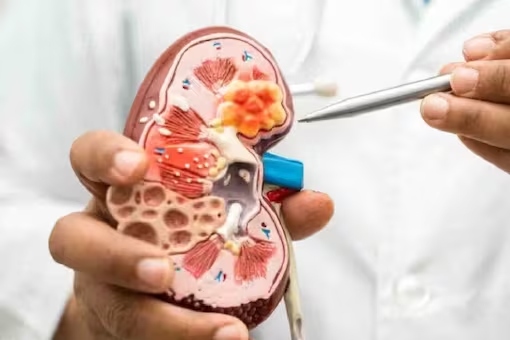Urinary tract infections, particularly kidney stones, pose a prevalent health concern. Neglecting the matter can have serious consequences. These mineral fragments, hardened in the kidneys, are typically small and pass through urine without difficulty. But in the case of larger stones, seeking medical intervention becomes crucial for removal or fragmentation. Early treatment is crucial, as avoiding the condition can exacerbate complications and, in severe instances, pose potential dangers.
The problem of urinary stones has become more prevalent among younger people. Insufficient daily water intake is a key factor. Below are five important symptoms of kidney stones. Take a look.
Back Pain
People with kidney stones often have severe pain in their lower back or along the sides of their spine, going down to the pelvic area. This pain spreads through the belly and pelvis, making it hard to stand or walk. It’s important to notice these signs quickly so you can get help and care right away.
Pain or Irritation when Urinating
When kidney stones get stuck between the tube connecting your kidney and bladder, you might feel pain during urination. This discomfort can be quite irritating. Doctors refer to this as dysuria. Recognising these signs early is important for getting the right care.
Blood in the Urine
Blood in the urine is a common sign for people with kidney stones, known as hematuria. The blood may show up as red, pink, or brown. In some cases, the blood cells are too tiny to see without a microscope (referred to as microscopic hematuria). Your doctor can check your urine to determine if there is any blood present.
Nausea and Vomiting
Nausea and vomiting are common signs for those dealing with kidney stones. These symptoms stem from the interconnected nerves between the kidneys and the gastrointestinal (GI) tract. The presence of stones in the kidneys can activate these nerves in the GI tract, resulting in stomach upset. Moreover, the body may respond to intense pain with nausea and vomiting.
Fever and Chills
Fever and chills are another sign of a kidney or urinary tract infection, a significant issue linked with kidney stones. These symptoms might also point to other serious health concerns. Seeking timely medical attention is essential if you experience pain with a fever. In infections, fevers are usually high, around 100.4˚F (38˚C) or more, often with chills or shivering. Early recognition of these signs is crucial for proper medical care.


